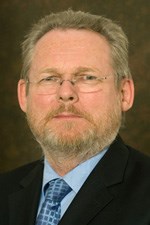
Top stories






LifestyleWhen to stop Googling and call the vet: Expert advice on pet allergies from dotsure.co.za
dotsure.co.za 2 days
More news























Aquaculture is a key growth sectors in the Trade and Industry department's Industrial Policy Action Plan (Ipap).
The plan for 2012 to 2014 notes that‚ internationally‚ aquaculture is the fastest-growing food production sector in the world‚ with an annual growth rate of between 8% and 10% a year, outstripping livestock production by three- or four-fold. The South African sector showed growth of only 3% in 2010.
"This slow pace of growth in aquaculture can be attributed to lack of integrated plans and government involvement in driving development of the sector‚" the document claimed.
South African production has largely been concentrated on mussels‚ oysters and abalone and‚ according to the Department of Agriculture‚ amounted to only 7‚686 tons in 2011‚ of which about 1‚000t was seaweed. Davies believes it is possible to increase production dramatically.
The incentive programme provides a reimbursement grant for pre-approved projects in either the primary or secondary sectors of the aquaculture sector. It has been running commercially for a year. The department's chief director for product development Tumelo Marivate said the grant would help a producer's cash flow once the investment was in place.
The incentive forms part of the department's R800m enterprise development programme and will offer a maximum of R40m on a cost-sharing basis for investment in machinery and equipment‚ bulk infrastructure‚ land and buildings. leasehold improvements and competitiveness.
The programme will last until 2018.
The size of the incentive grant depends on how well applicants score in terms of the size of capital investment‚ job creation‚ geographic spread and contribution and black economic empowerment.
The maximum grant for an investment up to R5m is R2.25m; R10.5m for investments between R5m and R30m; and R40m (the maximum amount possible) for investments valued between R30m and R200m. A minimum investment - to allow small firms to enter the industry - has not yet been defined‚ said Davies .
He said at the launch of the programme that nearly a half of total world production of fish protein came from aquaculture‚ which was likely to increase as wild fish stocks were being grossly depleted. "There is a major change taking place in the production and consumption of aquatic protein‚" he said.
Africa was responsible for just over 2% of the world's aquaculture fish production‚ of which South Africa produced less than 1%. In tonnage terms‚ South Africa produced less than 25% of Africa's aquaculture production compared with Nigeria's 200‚000t and Egypt's 9‚000t.
Davies said the incentive was only one part of government's strategy to develop aquaculture‚ which also included research and development of fish stocks‚ skills development‚ trade and exports.
Aquaculture has been identified as one of the activities to be undertaken at the proposed Saldhana Bay and East London industrial development zones.
An official from the Department of Water and Environmental Affairs conceded that the lack of availability of water in South Africa was a challenge to the development of the industry but said this could be overcome through the use of different technologies such as recycling.

For more than two decades, I-Net Bridge has been one of South Africa’s preferred electronic providers of innovative solutions, data of the highest calibre, reliable platforms and excellent supporting systems. Our products include workstations, web applications and data feeds packaged with in-depth news and powerful analytical tools empowering clients to make meaningful decisions.
We pride ourselves on our wide variety of in-house skills, encompassing multiple platforms and applications. These skills enable us to not only function as a first class facility, but also design, implement and support all our client needs at a level that confirms I-Net Bridge a leader in its field.
Go to: http://www.inet.co.za